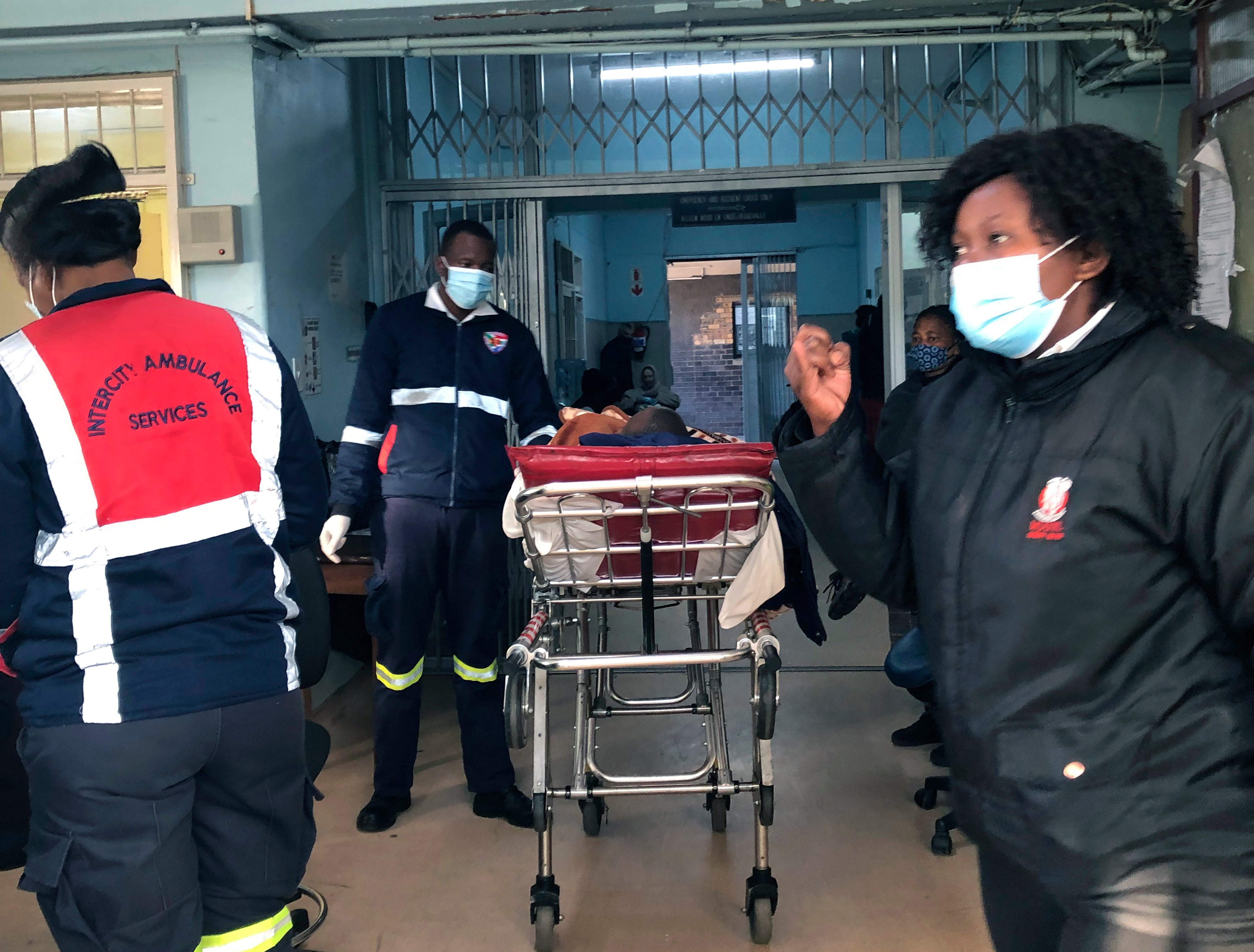South Africa tightens restrictions to fight resurgent virus
South Africa has reintroduced tough restrictions including a ban on alcohol sales and an extended nightly curfew as it fights a fast-increasing surge of COVID-19 cases

Your support helps us to tell the story
From reproductive rights to climate change to Big Tech, The Independent is on the ground when the story is developing. Whether it's investigating the financials of Elon Musk's pro-Trump PAC or producing our latest documentary, 'The A Word', which shines a light on the American women fighting for reproductive rights, we know how important it is to parse out the facts from the messaging.
At such a critical moment in US history, we need reporters on the ground. Your donation allows us to keep sending journalists to speak to both sides of the story.
The Independent is trusted by Americans across the entire political spectrum. And unlike many other quality news outlets, we choose not to lock Americans out of our reporting and analysis with paywalls. We believe quality journalism should be available to everyone, paid for by those who can afford it.
Your support makes all the difference.Battling a fast-increasing surge of COVID-19 cases, South Africa has reintroduced tough restrictions including a ban on alcohol sales and an extended nightly curfew.
The delta variant, first discovered in India appears to be driving South Africa’s new increase, President Cyril Ramaphosa said Sunday night, announcing the return to strict measures.
South Africa recorded more than 15,000 new cases Sunday, including 122 deaths, bringing its total fatalities to near 60,000.
Gauteng the country’s most populous province which includes the largest city Johannesburg and the capital Pretoria, has the brunt of the current surge, accounting for about 66% of new infections.
Health authorities are concerned that the country’s eight other provinces are likely to soon see spikes in cases to match those in Gauteng, where hospitals are running short of COVID-19 beds and patients are being taken to health facilities in other provinces.
Neighboring Zimbabwe, Namibia and Mozambique are also fighting growing numbers of cases, hospitalizations and deaths.
“A third wave is gathering in strength and force,” Ramaphosa said in an address broadcast nationally in which he said all public gatherings would be banned for two weeks, except for funerals which can only be attended by 50 people.
“Once again, we find ourselves at a defining moment in our fight against this disease,” he said, urging all to continue wearing masks and keeping a distance from others.
“Let us call on every bit of strength we have, let us summon our reserves of courage, and hold firm until this wave, too, passes over us," a somber Ramaphosa said. "We have climbed many hills before, and we will climb this one, too.”
South Africa's vaccination rate is slowly picking up speed. By Sunday, 2.7 million people had received a least one jab. More than 950,000 of South Africa's 1.25 million health care workers have been vaccinated, said Ramaphosa.
Deliveries of the Johnson & Johnson and Pfizer vaccines are increasing, he said. South Africa aims to vaccinate 67% of its 60 million people by February 2022.
As a new surge of the disease sweeps across Africa's 54 countries, about 1% of the continent's 1.3 billion people have received at least one vaccine dose, according to the Africa Centers for Disease Control and Prevention.
South Africa's rampant corruption has also become a factor as the health minister has stepped down because of reports his family members benefitted from inflated payments on contracts related to COVID-19.